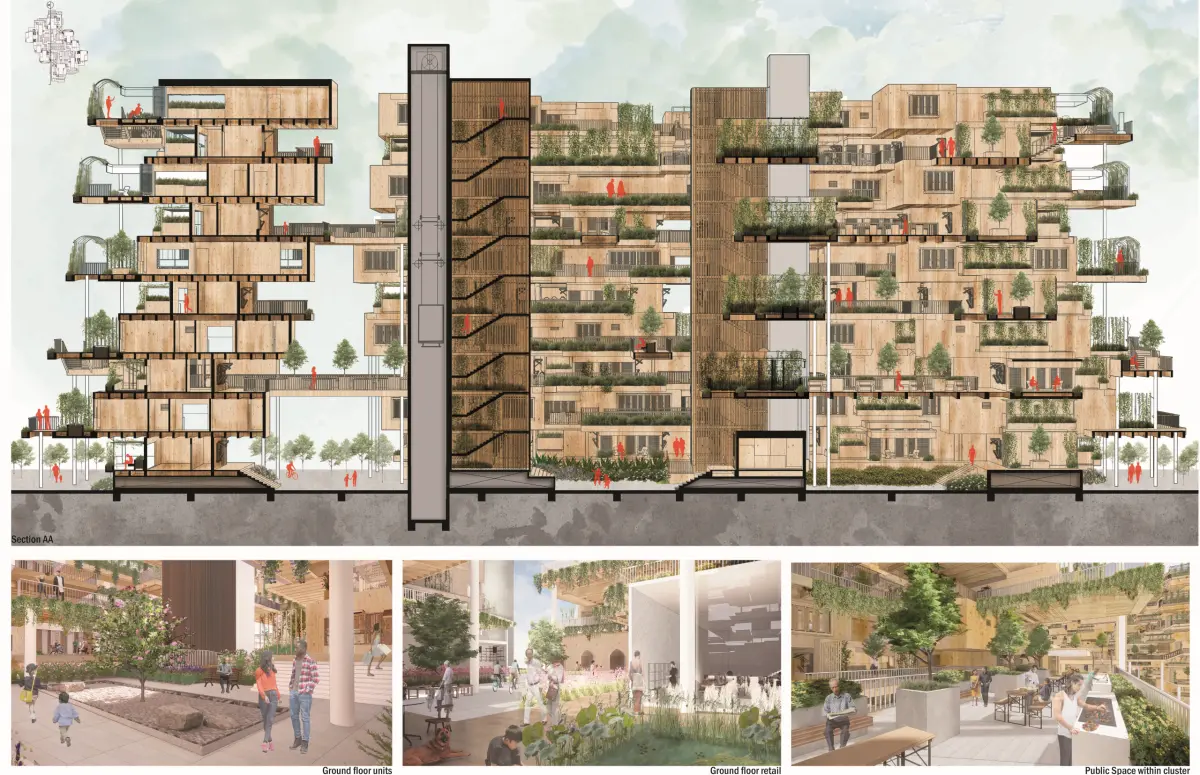
2050 Conscious City
BY Sarah Wong Si Min
SUPERVISED BY Adj. Assoc. Prof. Hans Brouwer
STUDIO THEME IN PURSUIT OF OPTIMISM
Abstract
The Conscious city was coined by architect Itai Palti and neuroscientist Prof Moshe, in their attempts to create a society that understands the people, one that alleviates social issues and establishes an empathetic environment. Singapore places high importance on maximizing efficiency and productivity, as evident from the rise in GDP per capita from $320 to $60,000.
Then-Prime Minister Lee Kuan Yew had the vision to prioritise human resource development, as Singapore has no natural resources and must rely on manpower to progress. The constant movement of a productive workforce has created additional stress on the community, which negatively influences an individual’s mental wellbeing. This thesis questions, what if our city prioritises the ideology of conscious city in planning over efficiency and productivity?
Additionally, the COVID-19 pandemic raised mental health-related issues, as the lockdown amplified the lack of social connection. The HDB model was perceived as a symbol of self-isolation that lacks human interaction. Introduced in the 1960s to tackle the shortage of housing, the HDB was designed for a utilitarian purpose
Furthermore, the housing policy favours the family nucleus which questions the notion of social cohesion and inclusivity in the community. As Singapore advances into the future there may be a shift in the conservative mindset. As a result, the evolution of social cohesion can influence the reconfiguration of a new housing typology. This thesis examines the progression of social cohesion and critiques the current HDB model and attempts to redefine public housing to improve the wellbeing and social cohesion of the residents.
Supervisor Comments
Sarah’s project was a brave attempt at pursuing an architecture that has no hang-ups with form or imageability. It pursues a design informed by aggressive and unbiased exploration of organisational, spatial and material expression that seeks to reimagine how public housing could be, once divorced from the binary value system that places a premium on economic efficiency. The outcome is a delightful cluster of apartments whose design and organisation are determined by maximising social cohesion and balance. The refreshing outcome demonstrates the importance of architecture in service of real experiential outcomes.
- Adj. Assoc. Prof. Hans Brouwer